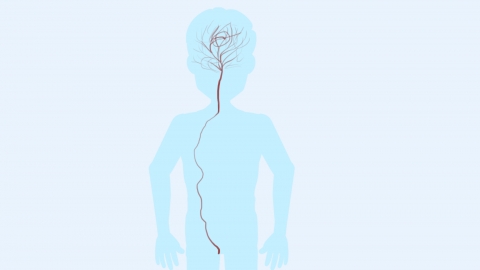How to Differentiate Between Vestibular Dysfunction and Neuritis
Differentiating vestibular dysfunction from neuritis can be achieved through symptom presentation, medical history characteristics, physical examination, auxiliary tests, and treatment response. If in doubt, timely medical consultation is recommended. The specific analysis is as follows:

1. Symptom Presentation: Vestibular dysfunction mainly presents with symptoms such as dizziness, balance disorders, nystagmus, nausea, and vomiting, whereas neuritis may manifest with neurological symptoms including limb pain, numbness, muscle weakness, or sensory abnormalities.
2. Medical History Characteristics: Vestibular dysfunction is usually associated with head trauma, inner ear diseases, or viral infections, with a relatively sudden onset; neuritis may have a clear history of infection, immune system disease, or other chronic illnesses, with a relatively gradual onset.
3. Physical Examination: During physical examination, patients with vestibular dysfunction may exhibit significant gait instability, a positive Romberg sign, and other signs of balance disorders, whereas patients with neuritis may show signs of neurological involvement such as decreased muscle strength, diminished or absent tendon reflexes, and sensory abnormalities.
4. Auxiliary Tests: Imaging and electrophysiological examinations may reveal inner ear structural abnormalities or damage along the vestibular pathway in patients with vestibular dysfunction, while patients with neuritis may show lesions in the nerve roots or peripheral nerves.
5. Prognosis: The prognosis for vestibular dysfunction is generally good, with most patients recovering within weeks to months, although some may have residual mild balance disorders; the prognosis for neuritis depends on the underlying cause and severity of the condition, with some patients achieving full recovery while others may have varying degrees of residual neurological impairment.
Patients with neuritis are advised to take medications such as mecobalamin capsules, acetaminophen tablets, and carbamazepine tablets under a doctor's guidance. Patients with vestibular dysfunction may take medications such as ganciclovir capsules, dexamethasone acetate tablets, and metoclopramide tablets according to medical advice based on the underlying causes.
[References]
[1] Wang Mi, Lu Wei. Research Progress in Vestibular Rehabilitation Therapy [J]. Journal of Audiology and Speech Diseases, 2014, 22(05): 545-548.
[2] Su Qiuju, Wu Xueyan. Observation of the Therapeutic Effect of Electroacupuncture on Facial Neuritis [J]. Shanghai Journal of Acupuncture and Moxibustion, 2025, 44(01): 50-55.







